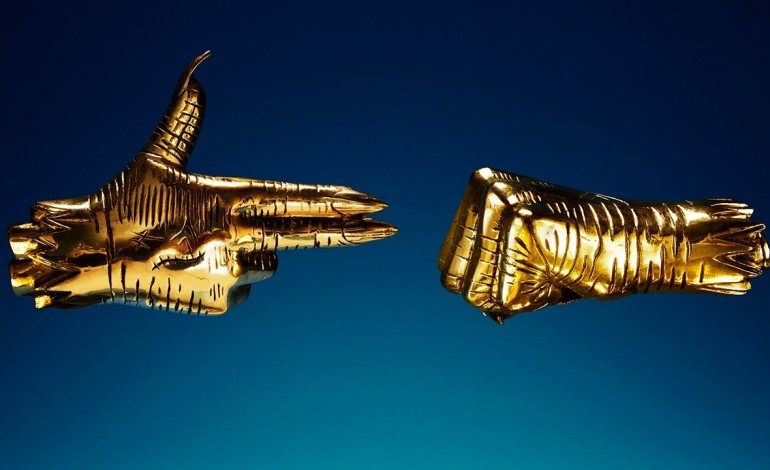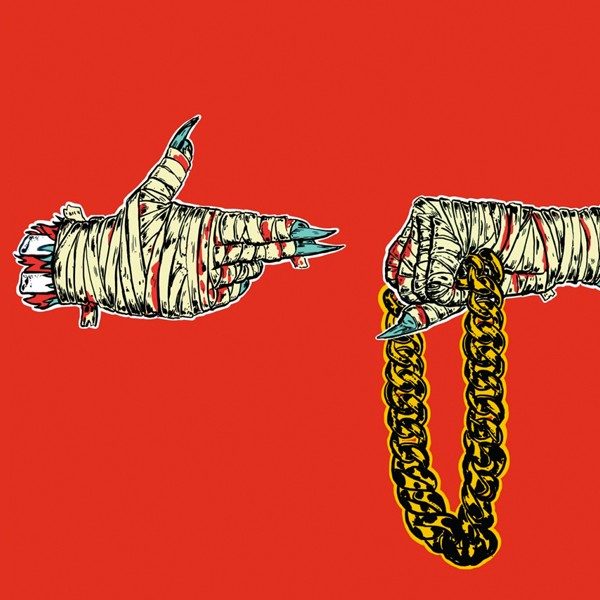

Expect the Expected
Run the Jewels, the collaborative effort of underground legends Killer Mike and El-P, has always been defined by its immersion in stagnancy. In the midst of the buzzing hi-hat slurs and auto-tuned choruses of the modern mainstream, such a methodical and traditional approach to hip-hop is exactly what vaulted Run the Jewels 2 to the peak of critical acclaim. However, this very stagnancy is what undermines the group’s latest work, RTJ3. The sonic texture is still dominated by sub-bass, tempo is essentially uniform, wordplay is too often relegated to dick jokes; and while the duo continues to assert their relevance in the dominion of indie-rap, maintaining allegiances with cultural gurus from a range of artistic communities, unexpected guest turns from the likes of Tunde Adebimpe of TV on the Radio and saxophonist Kamasi Washington do little to strengthen the monotony of this record.
As emcees, both halves of the RTJ union have such a breadth of experience, such a pattern of excellence, that it comes as no surprise that their lyrics are delivered with panache and tempered syncopation. Herein, RTJ3 meets any and all expectations–and how could it not? Though Killer Mike may persist as a political figure in the social conscious of many Americans, his musical career has long been defined by unanimous critical praise. El-P, a twenty-year veteran of the hip-hop industry, has consistently delivered calculated and intelligent lyricism, and his delectably abrasive flow is the perfect compliment to Mike’s lax self-assuredness.
Unsurprisingly, the two are at their most effective when they capitalize on this very duality: tracks like “Legend Has It” and “Everybody Stay Calm” allow the emcees to share verses, trading short stanzas and phrases as was common among rap groups of generations past. Such a passing of the mic shines a spotlight on the lyricism of both rappers; and though El-P’s repetitive production does little to capture the attention of the listener, these split verses consistently draw the listener back in.
Other moments, unfortunately, come off as bunts. “Panther Like A Panther,” the lead single off of the album, lands somewhere between an homage to youth and a laundry list of hollow braggadocio. Certain moments seem to miss the mark entirely. “Call Ticketron,” a rambling portrait of a past-or-future performance at Madison Square Garden, lacks purpose or effect, and more than one chorus on the record allows an opportunity for craft to fall by the wayside (“G-O-L-D, G-O-L-D, it’s gold/G-O-L-D, G-O-L-D, that’s gold,” they chant on “Stay Gold”). Though the lyrics are never altogether lazy, the apparent absence of concept causes many of these songs to stumble.
Run the Jewels have certainly not produced a bad record. Nothing here is executed incorrectly, or even poorly, and for the fan searching for a deeper well of cleverly conceived boast rap and socio-political pessimism, RTJ3 may indeed satisfy the whole of his or her expectations. However, new stones remain unturned, and for an ensemble cherished for their unquestioned artistic merit, Run the Jewels presents a collection that sounds more like well-crafted B-sides than a piece of art.

